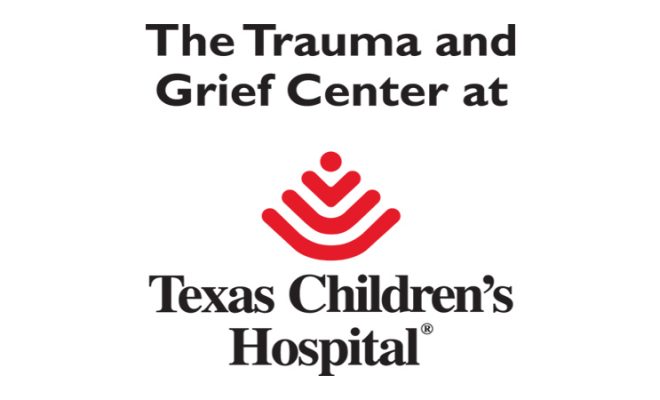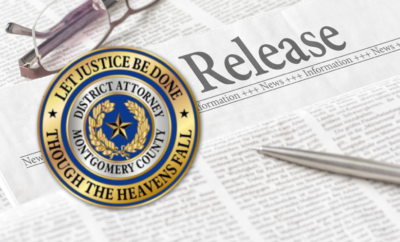
Health
Texas Children’s Treating More Affected Children Two Years After Hurricane Harvey
HOUSTON, TX – Nearly two years after the historic rainfall and flooding of Hurricane Harvey, Texas Children’s Harvey Resiliency and Recovery Program is assessing and treating more children than it did in the six to eight months immediately following the storm.
“Currently, we’re seeing about 250 kids per month in our Trauma and Grief Center overall when you look at new assessments and those coming in for return appointments, and many of these children were impacted by Harvey,” Dr. Julie Kaplow, Shannon and Mark A. Wallace Endowed Chair in Pediatric Behavioral Health at Texas Children’s Hospital, says.
There are many immediate effects of a major disaster that are visible to the public eye and include infrastructure damage, flooding and public health issues, such as water contamination. The long-term psychological impacts of a major event are harder to see. In the short-term, parents and caregivers are most concerned with fulfilling survival-mode needs – restoring shelter, food and water for their families – and may not be as attuned to the mental health needs of children. As time passes though, and if the effects of the traumatic event are not properly addressed, children can develop post-traumatic stress syndrome (PTSD) symptoms.
Through the Harvey Resiliency and Recovery Program, which is part of the hospital’s Trauma and Grief Center, experts help address the mental health needs of those children who survived the storm and were exposed to trauma-related risk factors that research indicates are likely to predispose them to long-term mental, emotional, and physical consequences.
It is important for parents and caregivers to be aware of the signs of PTSD which include the inability to sleep, nightmares, clinginess, separation distress, avoidance, and a child who refuses to talk about the event even two years later. Adults should also be mindful of their own reactions and behaviors as anxiety in caregivers will directly impact how a child copes.
“Hearing about another storm coming can be a trigger. A child can recognize the look of concern or worry on a caregiver’s face and that in turn can impact how the child will react,” Kaplow says. “You can help kids feel more in control of the situation by being open and honest with them, letting them guide the conversation, and giving them choices. For instance, you can say, “It looks like a storm might be coming and it may flood, how can we help prepare together? What are some things we might need?”
The Harvey Resiliency and Recovery Program uses evidence-based assessments and interventions – developed and tested at Texas Children’s – for traumatized and/or bereaved youth between the ages of 7 and 21. Through these unique evaluations and interventions, the team is able to more quickly recognize and address the needs of children who are at risk for developing PTSD and related psychological difficulties. The vast majority of kids who really need these interventions are those who had prior traumas and losses.
“We know the picture is much more complex for a child when, on top of a traumatic event like Hurricane Harvey, they were previously exposed to trauma, traumatic loss and/or severe adversity,” Kaplow adds.
Texas Children’s Trauma and Grief Center is one of the only health service agencies within this region of Texas that has expertise in treating both trauma and grief, and their interplay. As a result, access to care is a major area of focus.
To address this substantial need, the hospital deployed Trauma and Grief Center clinicians on mobile clinics and leveraged that work to create a dedicated therapy mobile clinic. This Trauma and Grief Center mobile clinic will go to some of the more underserved schools throughout the Houston community to reach those who may not be able to seek care at the hospital.
Additionally, the Trauma and Grief Center team holds large-scale trainings to equip the entire community, including school- and community-based clinicians, with this evidence-based, trauma- and grief-informed care.
“We know helping break down barriers to access is essential to reaching those vulnerable children who need us the most. This is why we are partnering with Lyft to help provide transportation to families who need it. We also cover the parking costs associated with visits for families to do what we can to decrease any additional stressors that can prevent access to mental health care,” Kaplow explains.
Texas Children’s is going beyond developing assessments and treatments, and the clinicians are focused on the long-term impact and outcomes of these children. Through measurement-based care, the team is consistently evaluating each child’s symptoms through a standardized assessment battery which includes an initial assessment, and check-ins on their symptoms every four to six weeks to make adjustments as necessary.
In addition, once a child has completed therapy, the team brings them back six months and one year later to assess them yet again.
“We know in our work with trauma and grief, we can see a resurgence of PTSD or maladaptive grief, so it’s important for us to track these kids over the longer term and intervene when necessary,” Kaplow adds.
Preliminary data shows significant reductions in PTSD, depression and – for those who are grieving – a decrease in maladaptive grief over the course of their treatment. School behavior and peer relationships improved as well.
The Harvey Resiliency and Recovery Program is supported by the Hurricane Harvey Relief Fund at the Greater Houston Community Foundation, Robert Wood Johnson Foundation, Rebuild Texas Fund, Center for Disaster Philanthropy, Meadows Foundation, JPB Foundation, Children’s Health Fund, Chevron, and Houck Family Foundation, as well as many generous individuals.
The Robert Wood Johnson Foundation pledged an additional gift to support related Trauma and Grief efforts in Puerto Rico. Beginning this month, Texas Children’s Trauma and Grief experts will work with the Boys and Girls Club of Puerto Rico to conduct a large-scale needs assessment of the community. This will inform the dissemination of culturally-sensitive, evidence-based assessments and interventions to address the ongoing mental health needs of the children impacted by Hurricane Maria and to prepare for other future disasters.




























0 comments